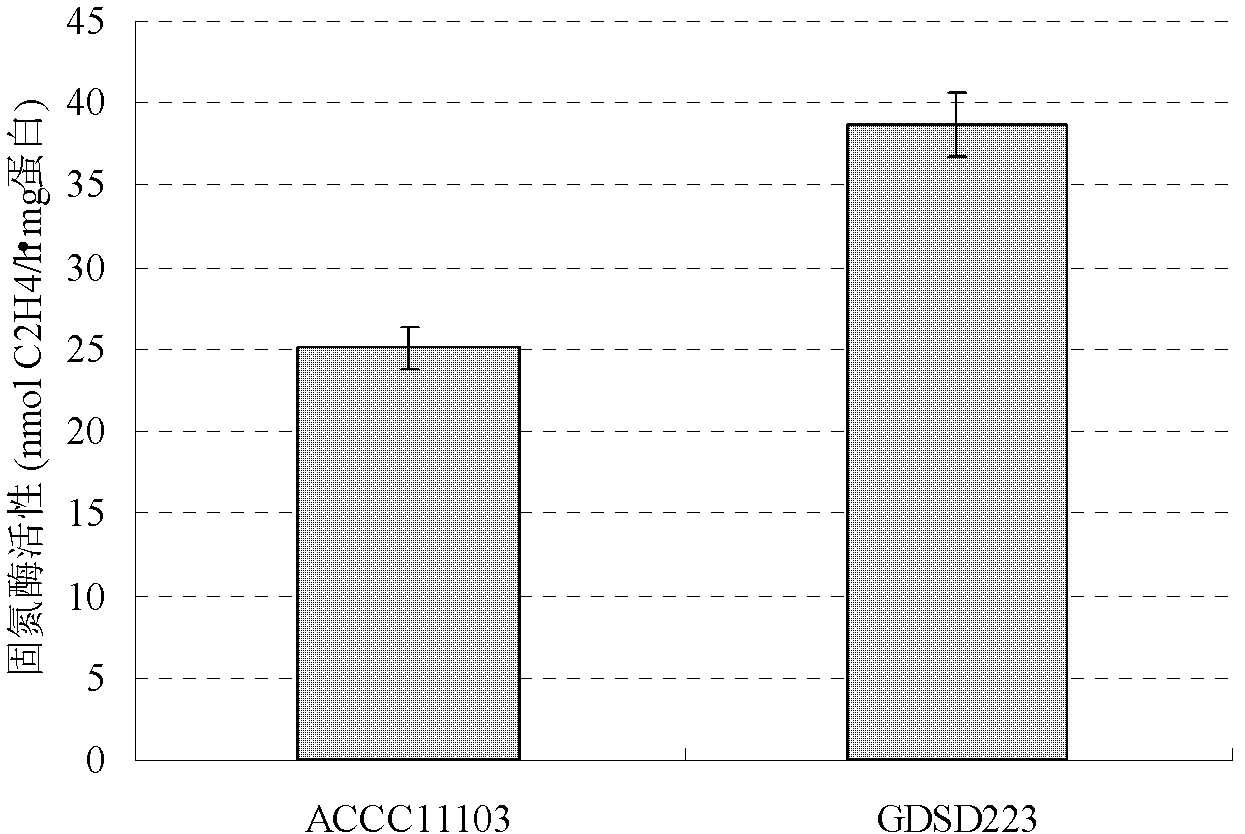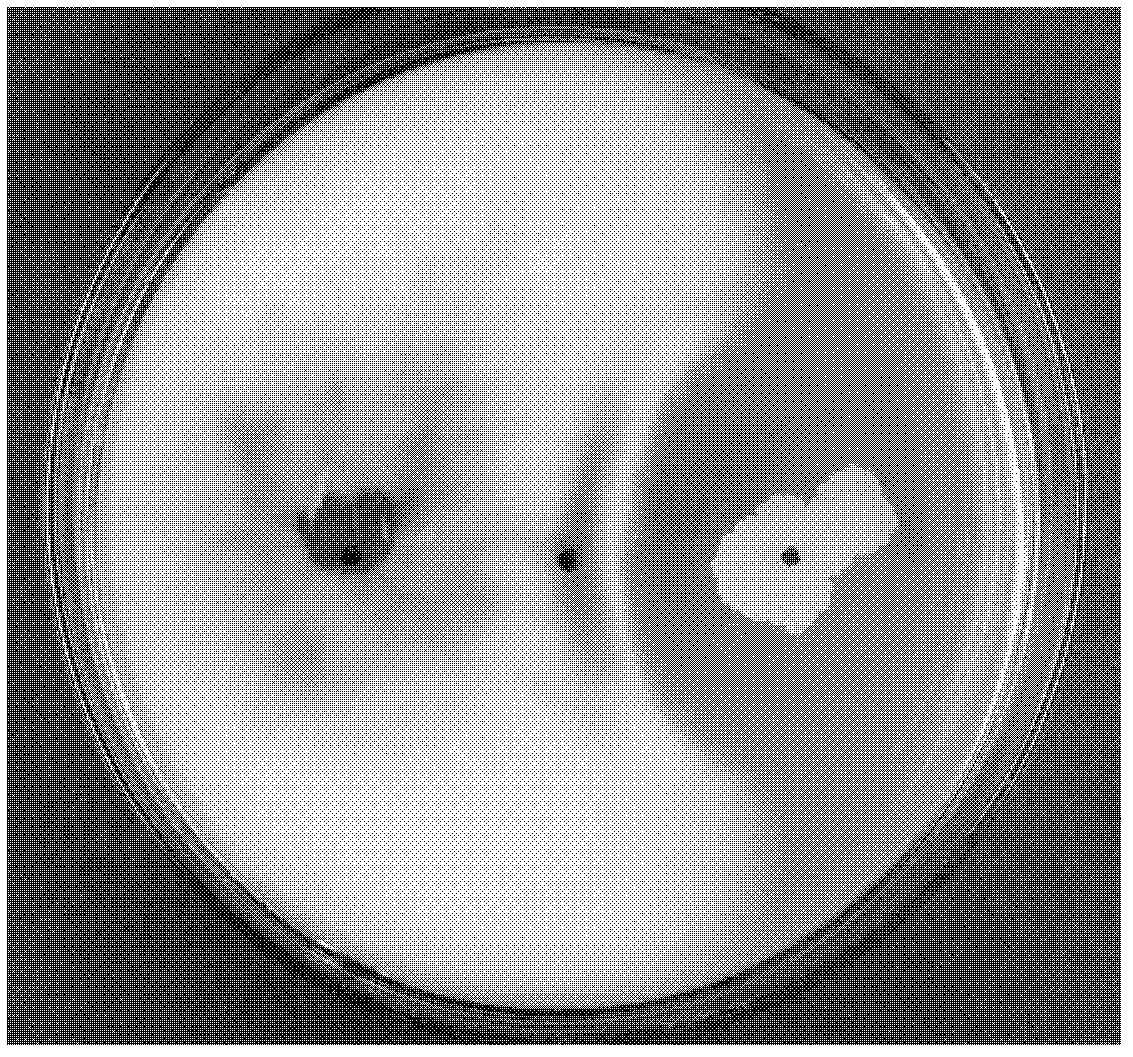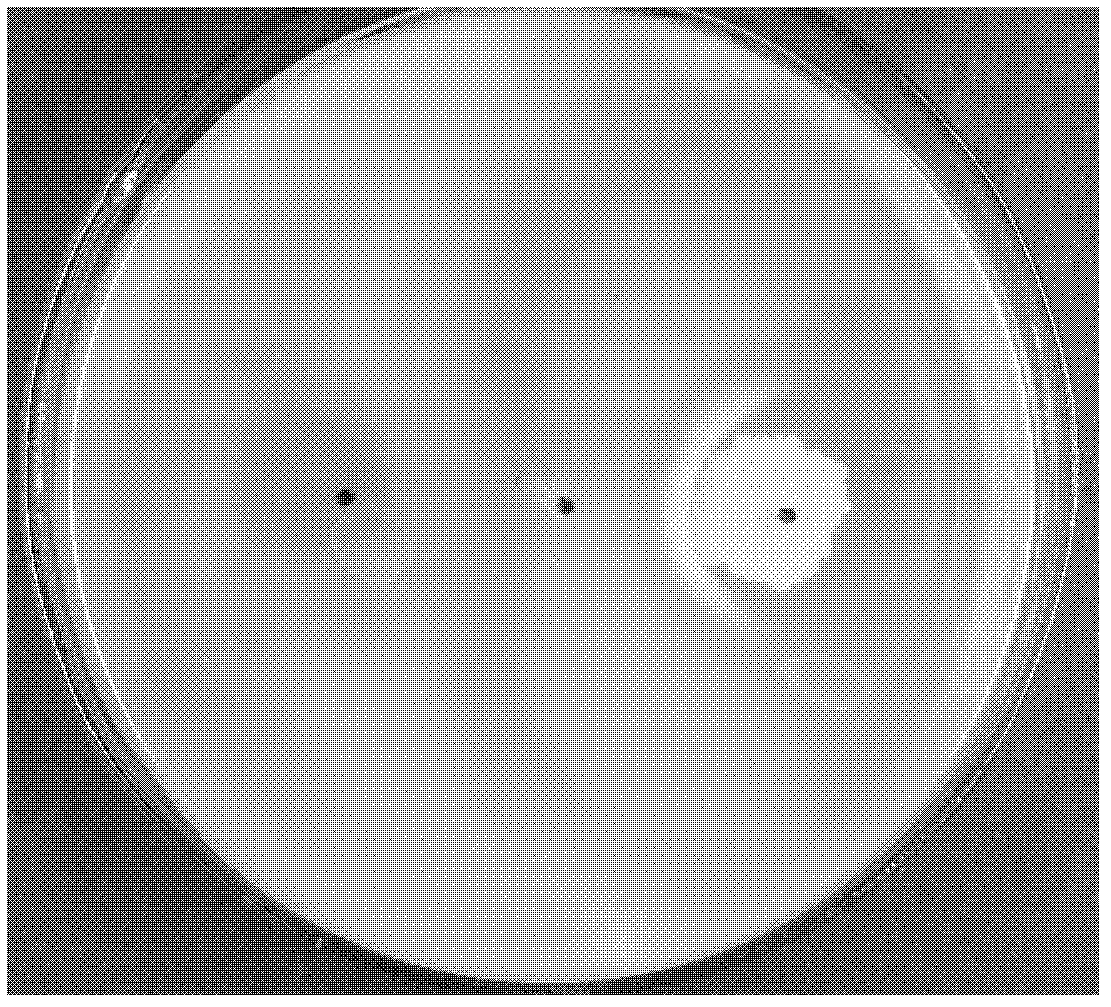Paddy rice endogenic nitrogen-fixing bacterium antagonistic to gibberella zeae and sclerotinia sclerotiorum and application thereof
A technology of nitrogenase and pathogenic fungi, applied in the direction of application, bacteria, biocide, etc., to achieve broad application prospects, high nitrogenase activity, and good inoculation effect
- Summary
- Abstract
- Description
- Claims
- Application Information
AI Technical Summary
Problems solved by technology
Method used
Image
Examples
Embodiment 1
[0043] Example 1, Isolation and identification of rice endogenous nitrogen-fixing bacteria GDSD223
[0044] 1. Isolation of rice endophytic nitrogen-fixing bacteria GDSD223
[0045] The specific operation for the isolation of endogenous nitrogen-fixing bacteria in rice is as follows: take fresh rice plants (collected from Heilongjiang Province, China), first rinse them with tap water, then soak them in 70% ethanol for 1 min, sterilize the surface with 2% sodium hypochlorite for 10 min, and sterile Rinse with water 3 times. Under aseptic operation conditions, accurately weigh 10.0g of the sample, grind it into a paste in a sterile mortar, transfer and set the volume to 100ml, and continue to dilute to make serial dilution samples, respectively starting from 10 -4 、10 -5 、10 -6 Take 0.1ml of the diluted solution and spread evenly on the above-mentioned CCM medium and nitrogen-free medium plate respectively, culture upside down at 28°C, and after 3-4 days, pick a single colony...
Embodiment 2
[0065] Embodiment 2, determination of nitrogenase activity of Bacillus sp. GDSD223 CGMCC No.5036
[0066] The Bacillus sp. (Bacillus sp.) GDSD223 CGMCC No.5036 that embodiment 1 is obtained carries out nitrogenase activity assay, and concrete method is as follows: in 15 * 150mm screw-top glass tubes, add 5ml improved nitrogen fixation medium and make inclined-plane, Inoculate Bacillus sp. GDSD223 CGMCC No.5036 and culture at 28°C. Azotobacter chroococcum (Azotobacter chroococcum) ACCC11103, which is commonly used in the production of microbial fertilizers, was used as the positive control, and the blank slant without inoculation was used as the negative control, with 3 replicates. After culturing for 72 hours, replace the rubber stopper, inject acetylene gas to make the final concentration 10%, seal it with medical adhesive tape, continue culturing for 72 hours, take 100 μl of reaction gas, measure the amount of ethylene produced by gas chromatography, and calculate the nitrog...
Embodiment 3
[0069] Embodiment 3, Bacillus sp. (Bacillus sp.) GDSD223 CGMCC No.5036 antagonizes pathogenic fungus bacteriostatic rate determination
[0070]The Bacillus sp. GDSD223 CGMCC No.5036 obtained in embodiment 1 is carried out to measure the antibacterial rate of antagonizing pathogenic fungi by two-point confrontation method, and the specific operation is as follows: on the PDA plate, on two points of 2 cm away from the center The crop pathogenic fungus Gibberella zeae (or Sclerotinia sclerotiorum) and Bacillus sp. GDSD223 CGMCC No.5036 were inoculated respectively, and each screening treatment was repeated three times to inoculate only the pathogenic fungus and not A plate of Bacillus sp. GDSD223 CGMCC No.5036 was used as a control. Incubate at a constant temperature at 28°C, and measure the colony radius r of the pathogenic fungi on the confrontation plate along the direction of the tested Bacillus sp. GDSD223 CGMCC No.5036 with a millimeter scale after 15 days 1 , and the colo...
PUM
 Login to View More
Login to View More Abstract
Description
Claims
Application Information
 Login to View More
Login to View More - R&D
- Intellectual Property
- Life Sciences
- Materials
- Tech Scout
- Unparalleled Data Quality
- Higher Quality Content
- 60% Fewer Hallucinations
Browse by: Latest US Patents, China's latest patents, Technical Efficacy Thesaurus, Application Domain, Technology Topic, Popular Technical Reports.
© 2025 PatSnap. All rights reserved.Legal|Privacy policy|Modern Slavery Act Transparency Statement|Sitemap|About US| Contact US: help@patsnap.com



